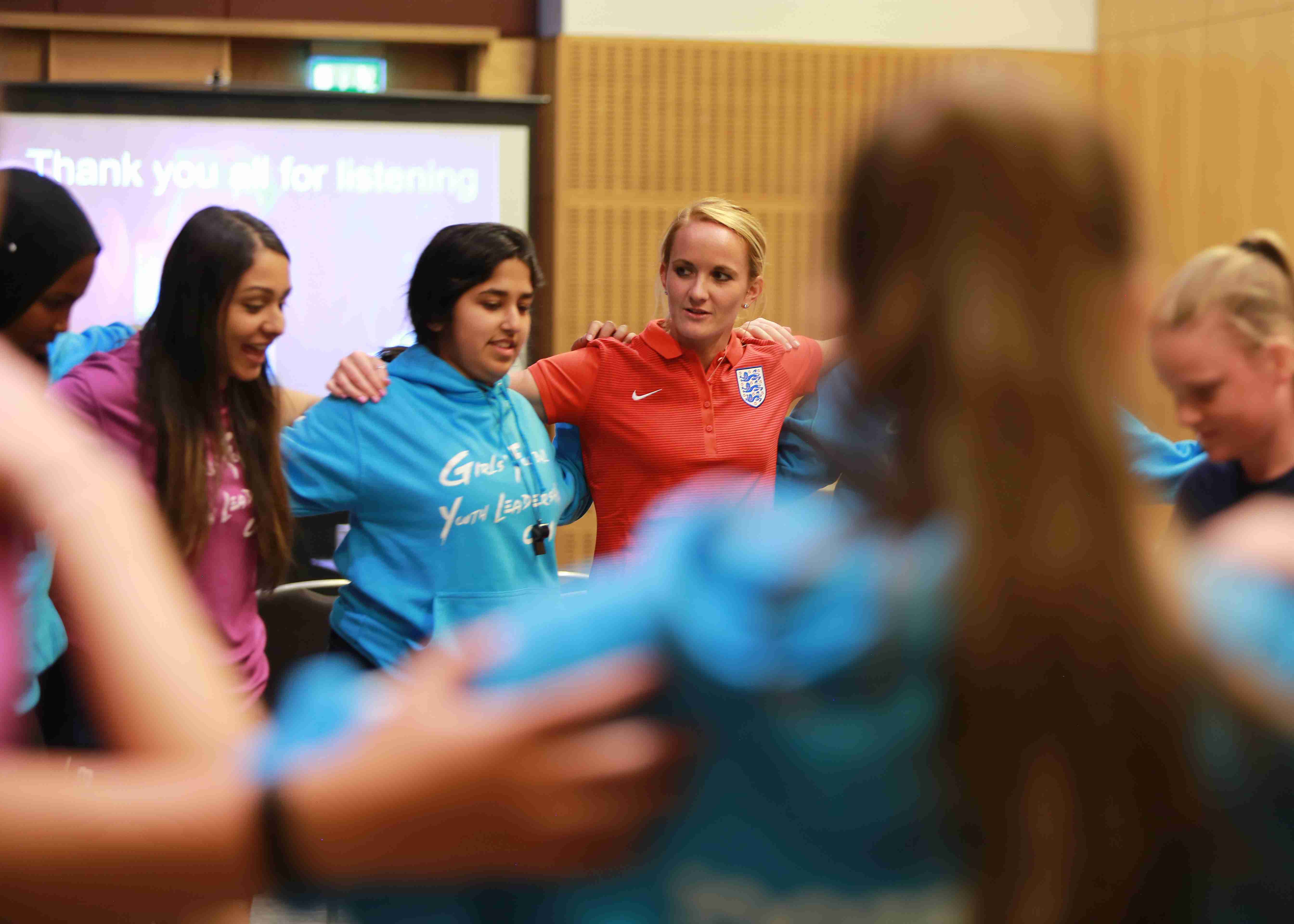On Friday 2nd December the Sport for Development Coalition will support 'Belonging 2022: Leading on Social Cohesion', the annual conference of Belong – The Cohesion and Integration Network, in Manchester. With the legacy, or ‘social impact’ of major sporting events under national media scrutiny – from London 2012 to the 2022 Commonwealth Games in Birmingham – we spoke to Belong CEO Jo Broadwood about the role that sport can play in helping to build ‘stronger communities and social cohesion’.
Hi Jo, thanks for speaking to us. In the run-up to major sporting events, we often hear about the hoped-for ‘legacy’ and how sport can ‘inspire a nation’. Do we need to be more pragmatic and precise about what that might entail?
JB: We’re right to think critically about legacy. The 2012 Olympics was a wonderful success, which brought people together and helped create an inclusive sense of shared identity. It’s fantastic right now to see the Lionesses inspiring young girls to become physically active and take up sport. But it can be difficult to show how the great atmospheres and intense interest around these big events translate into increased participation and other positive outcomes. This means we need to be more specific about the key health and societal outcomes we are trying to achieve, how they can be generated and who we need to work with to achieve them at scale.
For example, at the Belong Network we know that sport, especially when delivered by organisations that really know their local communities, can contribute to a stronger sense of connectedness, pride in place and belonging, and an increased valuing of diversity.

How do you know this?
JB: Multiple studies have recognised the potential of sport to bring people from different backgrounds together in a way that can help to break down barriers, reduce prejudice and create meaningful connections . Many sports organisations know that they can have this impact, but they typically lack the knowledge of how to do this intentionally and most effectively, and how to capture and measure their impact. This is why we produced the Power of Sport toolkit, working closely with partners like the Coalition, to provide an accessible, easy to use step-by-step guide to maximise the positive impact on social cohesion by those delivering sports and physical activity programmes.
Take for instance the Commonwealth Games. Birmingham is a great example of a diverse city where many community and voluntary-based organisations do great work, but they could use this type of support and guidance to sustain and grow their impact.
If this impact is happening at community level all year round, then how can sport for development effectively contribute to the legacy of these major events?
JB: Major events offer a brief but valuable window of opportunity to raise awareness and increase understanding about the value of targeted sport and physical activity based programmes in strengthening our social bonds. However, to sustain this all year round we must support those local actors and stakeholders, who know their communities and are relevant to them, with the knowledge and skills they need to be able to deliver. That’s why the Power of Sport toolkit was developed. Through supporting these organisations to maximise their impact, we can help to create that hoped-for legacy.
What role can sport for development, including sport for social cohesion, play in key policy priorities such as levelling up, tackling inequalities and the cost-of-living crisis?
JB: ‘Stronger communities and social cohesion’ is one of the five outcomes of the Coalition’s #OpenGoal framework which was developed following the publication of the Government’s White Paper on levelling up earlier this year to showcase the contribution of sport-based interventions to building a fairer, more equitable and sustainable future. We know that sport for social cohesion is part of a much bigger picture, both in terms of sport’s contribution to the range of policy objectives defined by #OpenGoal, and in terms of sport being one of many tools that can help to build social cohesion.
This is why our conference on September 16th is about bringing together organisations from across a range of different sectors – sport, local government, education, volunteering - whose work contributes to social cohesion. We need spaces where we can learn from each other and connect across sectors.
Finally, it seems there is a concerted effort from both UK Sport, Sport England and other sports councils to harness and increase the social impact of sport, and these events, for the future. What role can the Belong Network play in supporting that?
JB: We can be the bridge between sports-focused organisations and those with a focus on creating a less divided, more cohesive society. We can make available a pool of expertise about how to have a powerful impact on social cohesion and how to measure this impact, and help to mainstream that throughout sport. Hopefully, by doing this we can act as a template for achieving other positive social outcomes – like those set out in Open Goal - which sport can help to generate.
Register here for ‘Belonging 2022: Leading on Social Cohesion’ on September 16th



